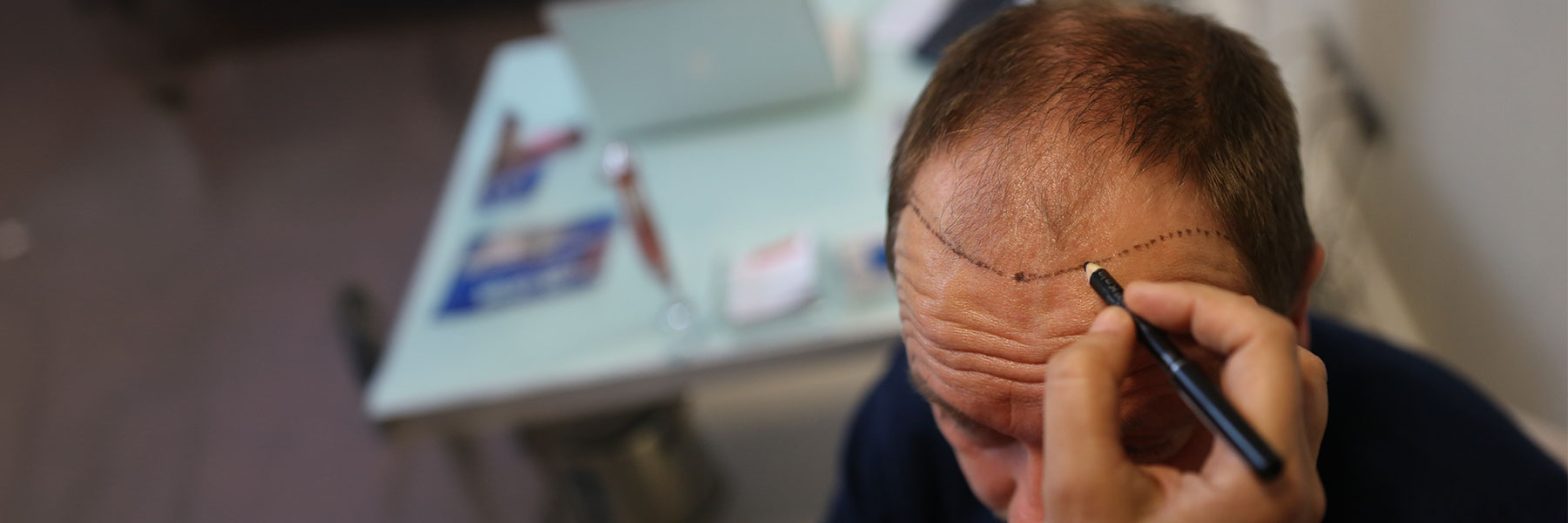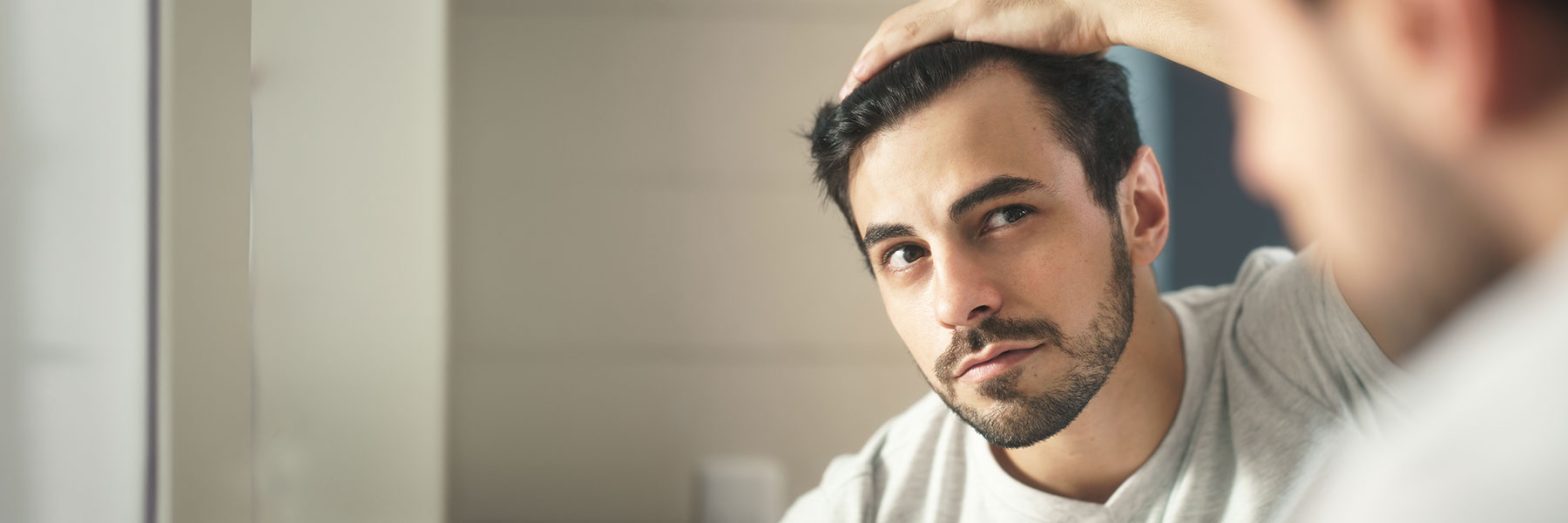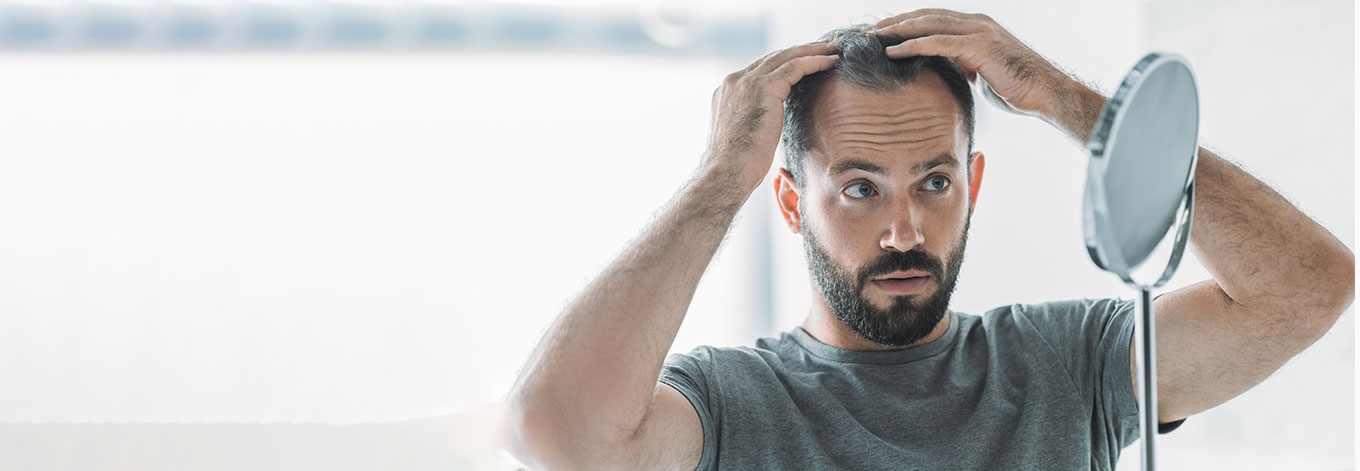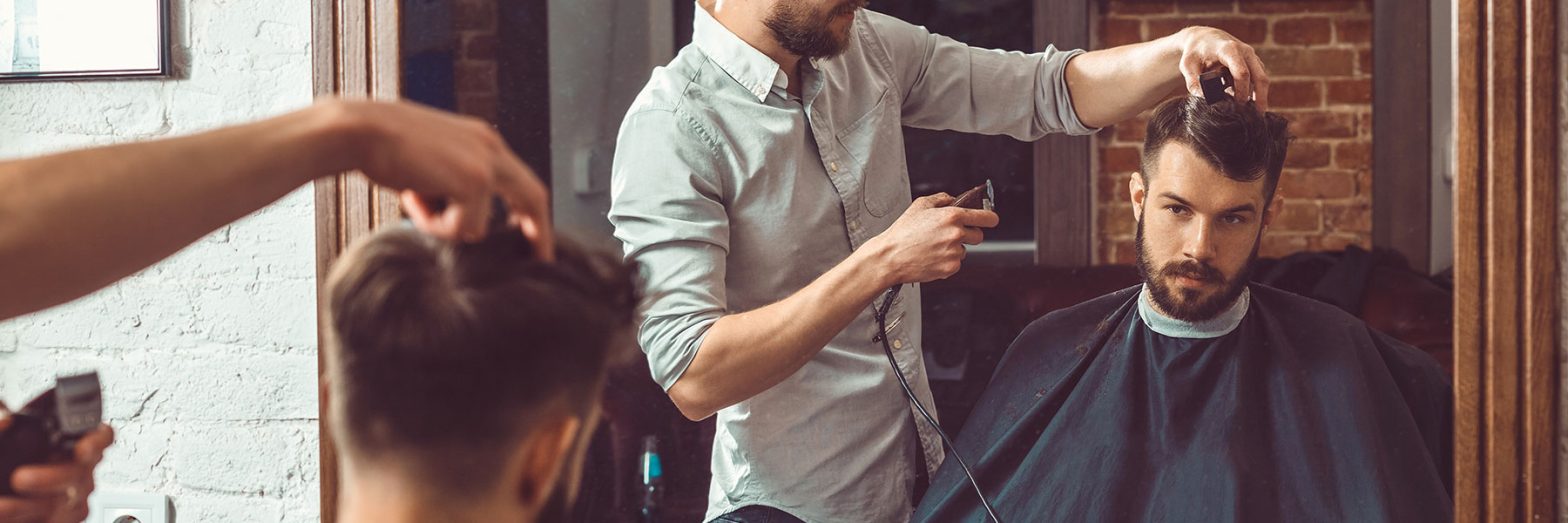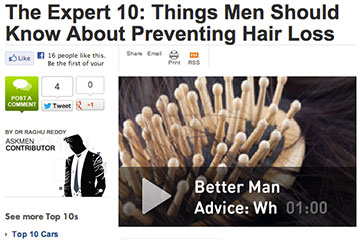
10 Things Men Should Know About Preventing Hair Loss
HAIR LOSS & HAIR TRANSPLANTS
Ask Men UK
Losing your hair, however old you are, is an unwelcome part of the male ageing process. However, the truth is, by the time we hit 50, over half of the male population have experienced hair loss, with many men starting to lose their hair as early as their 20s and in some cases, even in their late teens. The bad tpc_news is that hair loss is hereditary. So if your father or grandfather is thin on top, then the chances are you will be too. Equally, if they started to bald early, then you may also find yourself on the path to premature hair loss.
There have also been great advancements in treatments for hair loss in recent years. I perform the Third Generation FUE transplant treatment at The Private Clinic of Harley Street, which is the most advanced method available. The good tpc_news, however, is that there are some practical steps you can take to try and slow down the hair loss process before resorting to a transplant treatment.
Here are my top ten tips to follow if you are worried about a receding hair line.
No.10 – Keep your cool
Dr Reddy says: Avoid traumatising your hair with heat. Turn the shower down a notch and wash hair in warmish water rather than very hot, and let your hair dry naturally if possible. If you must blow dry then it helps to towel dry first, and if you can avoid the temptation to borrow your girlfriend’s straighteners, then all the better.
No.9 – Eat meat
Dr Reddy says: Hair is made up of keratin, which is a protein. By making sure you have a reasonable amount of protein in your diet, you’re giving your thinning locks much more of a fighting chance, and the best way? Eat lots of meat.
No.8 – Keep hair clean
Dr Reddy says: With the average amount of dust, smoke, and dirt that you’re exposed to on a daily basis, the idea of not washing your hair on regularly is something that you shouldn’t be entertaining. Washing your hair at least once a day will help avoid a build up of sweat or dirt which can block pores and hair follicles.
No.7 – Keep your hands off
Dr Reddy says: The scalp and hair follicles are sensitive to rough treatment, and being hacked at by your sharp finger nails isn’t a good idea. Try not to scratch your scalp with finger nails as this can damage it.
No.6 – Use a conditioner daily
Dr Reddy says: Conditioner makes your hair softer and helps prevent breakage. Make sure the conditioner is applied to the hair shafts, not the roots, and is rinsed out thoroughly.
No.5 – Take it easy on the styling products
Dr Reddy says: Lathering your scalp with gallons of styling product may be a good idea if you’re looking to achieve a towering Jedward-like quiff, but if you want to keep those locks then you need to think twice before dunking your head in Brylcreem. Only apply gel to the hair shafts to avoid clogging up the pores and follicles on the scalp.
No.4 – Keep it in the shade
Dr Reddy says: For years we’ve been warned against the harmful UV rays of the sun. We’ve been told to wear sunscreen to protect our skin, sunglasses to protect our eyes, but we’ve never been told to protect our hair. If you’re worried about thinning hair wear sun screen on your scalp or a hat to protect if you’re going to be out in the strong sun.
No.3 – There are products that can help
Dr Reddy says: There are preventative measures for hair loss, but there are also many products which have also been proven to help. If you are concerned about hair loss then you may find that over-the-counter products, such as Regaine, can help.
No.2 – See your doctor
Dr Reddy says: Medical conditions like anaemia and thyroid abnormalities can cause hair loss. If you are worried then it is a good idea to see a doctor to rule these conditions out.
No.1 – Get the blood flowing
Dr Reddy says: It has been said that standing on your head can help by increasing the blood supply to your scalp which in turn can help encourage hair growth. However, an easier (and more enjoyable) way to achieve the same thing is through a head and scalp massage. If you can convince your other half to administer daily, it’ll be worth it even if it doesn’t have an impact on hair growth.





